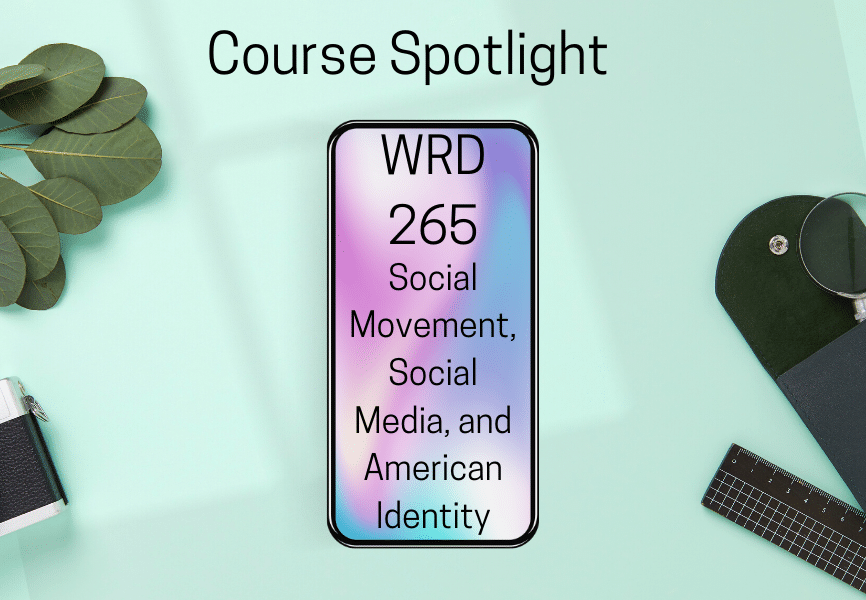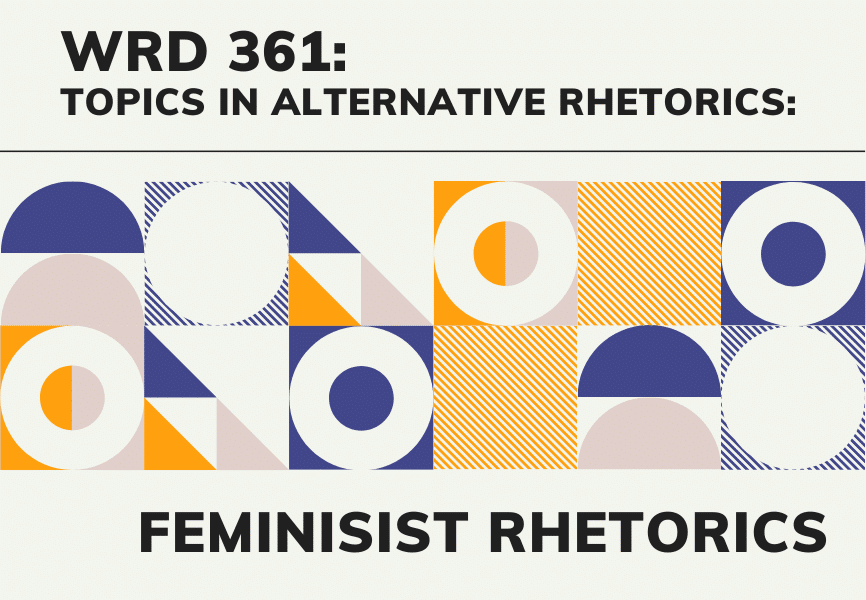Take an early look at WRD 371 to be offered in Spring!
Continue reading
News from DePaul University's Department of Writing, Rhetoric, and Discourse

Take an early look at WRD 371 to be offered in Spring!
Continue reading
Take a glimpse into WRD 264 with Dr. Jason Schneider.
Continue reading
Learn about undergraduate course WRD 340: Writing and Editing taught by Professor Julie Bokser.
Continue reading
Here is a preview of the revamped undergrad class, WRD 265 Social Movement, Social Media, and American Identities.
Continue reading
With the passing of Dia de los Muertos, we talked to Dr. Lydia Saravia about her current class LSP 200 Border Cultures and what students are learning in it.
Continue reading
Attention Undergrads! We have previews for two course this coming quarter, Legal Writing and Writing About Rights, both of which tackle the writing and rhetoric of the legal world.
Continue reading
In Autumn 2020, the WRD 361: Topics in Alternative Rhetorics course will focus on feminism. Learn more about the course and the professor, Monica Reyes, who will be joining the WRD Department this fall.
Continue reading
WRD 320: Writing in Crisis Contexts is a course that prepares students to write and respond effectively to any crisis situation, a valuable skill in many professional and digital writing jobs. Professor Alan Ackmann gave us insight into what students can expect from the course.
Continue reading
In WRD 241/515 The Essay, students will explore the essay from its origins in alphabetic text to contemporary renditions in film, audio, and interactive media. We spoke with WRD students and course instructor Dr. Pete Vandenberg to learn more!
Continue reading
The WRD 283 Environmental Writing course, taught by Dr. Deborah Rintels Weiner, provides an opportunity for students to explore environmental issues, read and write persuasive arguments, and learn about the power of rhetoric in this relevant contemporary issue.
Continue reading